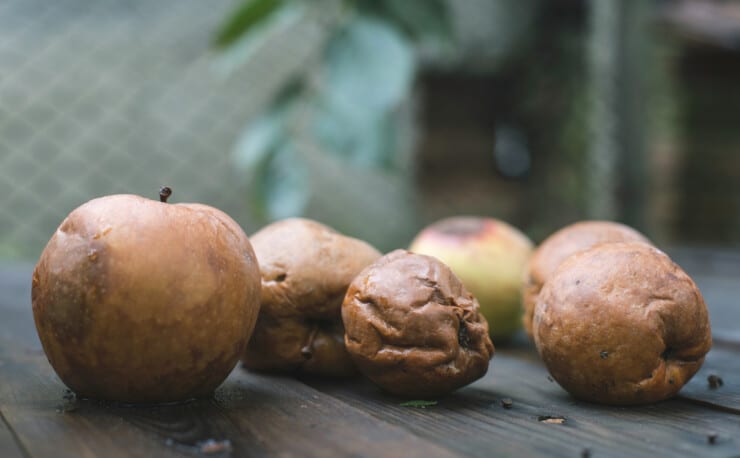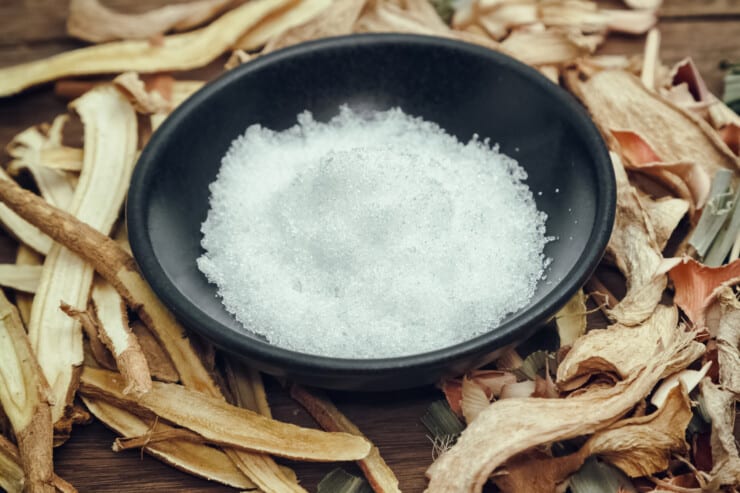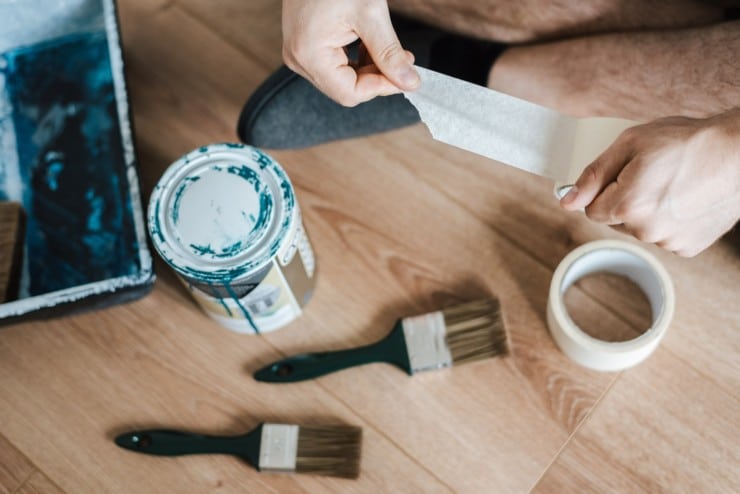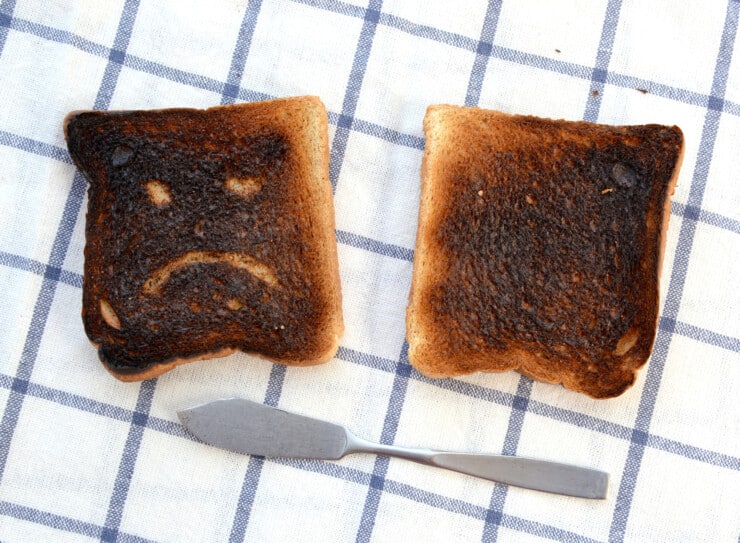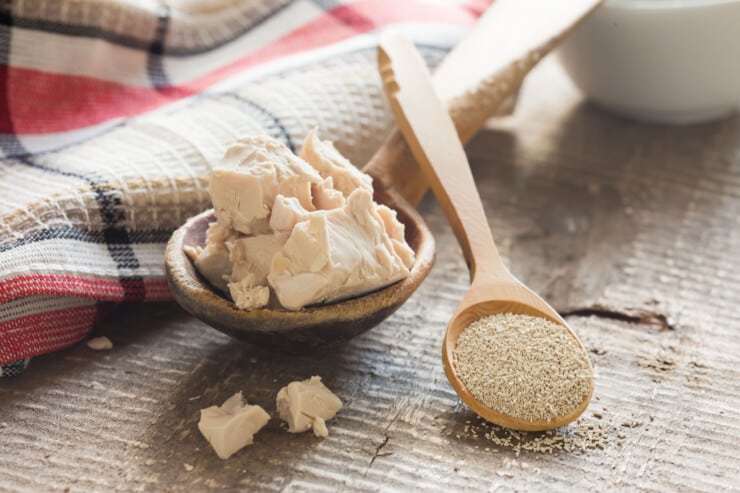Why is There a Strange Pickles Smell in My House?
You’re relaxing on your sofa, having a peaceful evening at your residence when out of nowhere, you’re hit with a familiar scent.
And no, it’s not the pickle jar you just opened to satisfy your late-night cravings.
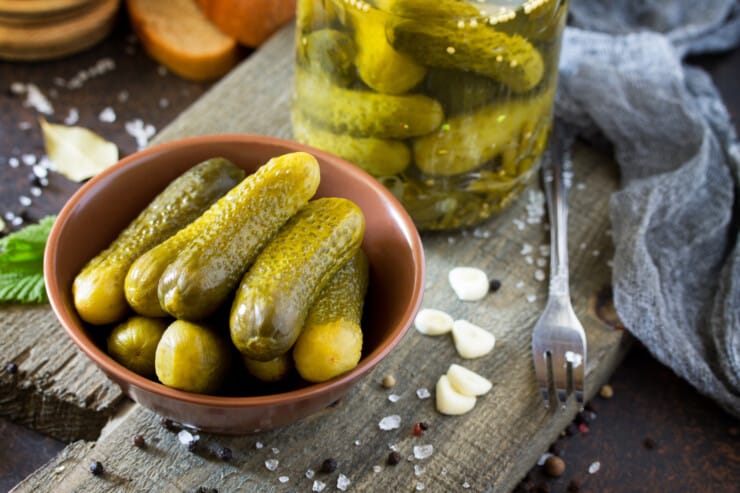
It seems as if an invisible army of pickles has infiltrated every corner of your house!
What could possibly be causing this bizarre aroma and more importantly, how do you get rid of it?
Fear not, fellow pickle-smell sufferer; we’ve got some answers for you.
Now before you start panicking or blaming yourself for eating too many pickles (we won’t judge), let’s unravel the mystery behind this peculiar odor.
This article will delve into the potential sources of that strange pickle smell lurking in your abode – from plumbing issues to hidden mold problems – and provide practical solutions to combat them effectively.
So sit back, relax, and prepare to achieve mastery over those pesky smells once and for all!
Investigating Plumbing Issues
When there are clogs or blockages in your plumbing system, water may be unable to flow freely and trap sewer gases as intended.
This allows those unpleasant odors to escape through drains and other openings, infiltrating your living space with an unwelcome aroma reminiscent of pickles.
Regularly inspecting pipes for buildup or obstructions will help ensure smooth sailing (and smelling) throughout your abode.
Now that we’ve considered how crucial proper plumbing maintenance is when addressing suspicious scents wafting around our homes, remember to stay vigilant in keeping an eye out for signs of trouble.
By doing so, you’ll easily maintain mastery over any rogue sewer gas leaks wreaking havoc on your personal sanctuary – without resorting to desperate measures like blaming innocent jars of dill pickles!
Identifying Mold And Mildew Problems
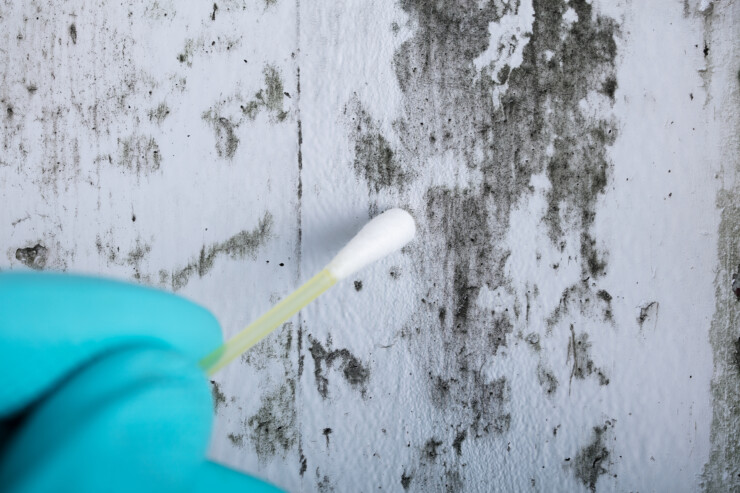
Detecting mold and mildew can be tricky, so it’s important to know the signs.
It’s usually caused by moisture and poor ventilation, so it’s important to identify any areas that may be vulnerable.
If you notice a strange pickle-like smell in your home, it could be an indication of a mold or mildew problem.
To be sure, you’ll want to inspect your home and look for any visible signs of mold or mildew.
Detecting Mold And Mildew
You might think that a strange pickles smell in your house is just an odd quirk, but it could actually be a sign of something more sinister lurking within your walls.
Mold and mildew can often emit a musty, sour odor similar to pickles, which means that you may have a hidden problem on your hands.
Don’t let this issue go unchecked – take action now to protect yourself and your loved ones from the potential health effects associated with mold exposure.
Detecting mold and mildew takes some investigative work, but by following these mold prevention tips, you’ll be well-equipped to uncover any issues in no time.
Begin by inspecting areas where moisture is likely to accumulate – such as bathrooms, basements, or around leaky pipes – for visible signs of mold growth or discoloration.
In addition to using your nose to sniff out that pickle-like aroma, consider purchasing a humidity meter or hygrometer to measure the moisture levels in different rooms of your home.
By maintaining ideal indoor humidity levels between 30% and 50%, you’re taking one crucial step towards preventing mold development.
The importance of addressing potential mold problems cannot be overstated when considering the health effects associated with exposure.
From respiratory issues like asthma flare-ups and allergies to more severe conditions such as chronic sinus infections or lung disease, tackling mold head-on is essential for preserving overall wellness.
Also, individuals with weakened immune systems are at higher risk for experiencing even more serious complications related to mold exposure.
So while that peculiar pickles scent wafting through your living room might seem innocent enough on its own, remember what’s truly at stake: the safety and wellbeing of those who call your house their home.
Causes Of Mold And Mildew
Now that you’re aware of the potential dangers associated with mold and mildew, let’s dive into understanding what causes these unwelcome intruders to thrive in our homes.
By getting to the root of the problem, you’ll be better equipped to implement effective mold prevention tips and maintain a healthy living environment for yourself and your loved ones.
Mold and mildew are attracted to damp, humid conditions – which is why they tend to pop up in places like bathrooms or basements.
This makes humidity control absolutely essential for keeping them at bay.
If you’ve got poor ventilation, leaky pipes, or even just live in an area with high outdoor humidity levels, it’s crucial to take steps towards reducing indoor moisture.
Simple actions like using exhaust fans when cooking or showering, fixing plumbing leaks promptly, and investing in a dehumidifier can make all the difference in preventing mold growth.
Checking For Food And Waste Sources
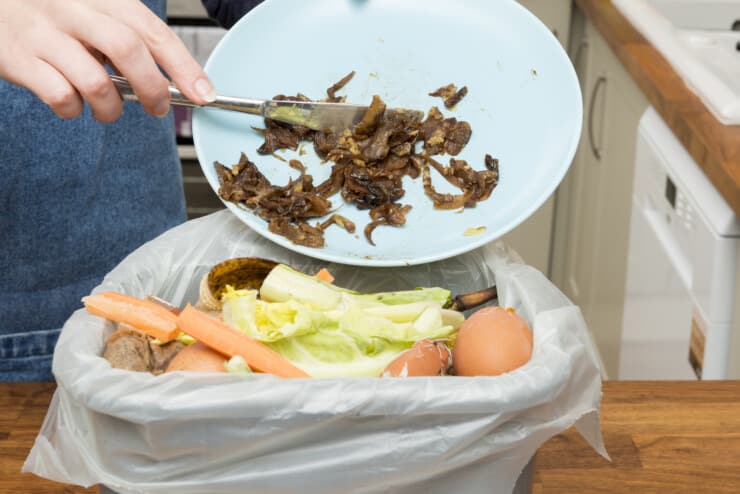
Now that we’ve explored the possibilities of mold and mildew being the cause of the strange pickles smell, let’s turn our attention to another potential source: food and waste.
It is essential to examine your home for any hidden or overlooked food spoilage or improper waste disposal.
These factors could be contributing to the unusual odor permeating throughout your living space.
Here are some key areas you should inspect in order to rule out these common culprits:
- Kitchen: Check cupboards, refrigerator, pantry, countertops, and under appliances for expired or rotting food items.
- Trash bins: Ensure all trash cans both inside and outside your home are properly sealed and not harboring any foul-smelling waste.
- Living spaces: Look around for forgotten dishes with leftover food scraps or even pet bowls that may have been left unattended.
When it comes to maintaining a fresh-smelling environment, staying on top of proper food storage practices and regular waste removal can make all the difference.
In addition to addressing any current issues involving spoiled food or inadequate waste disposal, consider adopting new habits like routinely cleaning out your fridge and regularly checking expiration dates on stored goods.
As part of this effort, dispose of garbage promptly – don’t let it sit indoors longer than necessary.
So remember, getting rid of that pickle-like aroma might be as simple as finding an old sandwich wedged behind the couch cushions.
By thoroughly examining your surroundings for hidden sources of odors related to food spoilage or waste disposal, you’re well on your way towards mastering a cleaner and fresher smelling living space!
Examining Household Products And Appliances
I’m starting to investigate why there’s a strange pickles smell in my house, so let’s begin by looking at the cleaning supplies I’ve been using.
Then we can move on to examining the room fragrances I’ve been using and see if they could be the culprit.
After that, we can take a closer look at the home appliances I have and see if they’re producing the smell.
Finally, we can look at anything else that could be causing the pickles smell and come up with a solution.
I’m sure we’ll be able to figure out what’s causing the smell and get rid of it.
Let’s get started!
Investigating Cleaning Supplies
As you walk into your kitchen, you can’t help but notice that strange pickle smell lingering in the air.
You’ve checked the fridge and pantry, but there are no pickles to be found.
So where could this odor be coming from? It’s time to investigate your cleaning supplies.
The chemical reactions that occur when mixing different cleaning products may produce a wide variety of smells, including that of pickles.
For instance, combining bleach and vinegar creates chlorine gas, which has a very similar scent to pickles.
Be cautious when using multiple cleaning agents together as it might not only produce unpleasant odors but also pose potential health hazards.
To avoid such issues while still effectively sanitizing your home, consider eco-friendly alternatives like baking soda or hydrogen peroxide.
These natural options are not only better for the environment but can also save you money on expensive store-bought cleaners.
Next time you’re scrubbing down your counters or mopping your floors, take note of whether that peculiar pickle aroma returns.
If so, check the ingredients list on each cleaner you use and ensure they don’t accidentally create any harmful cleaning chemical reactions.
By being mindful of what goes into our household products and appliances, we empower ourselves with knowledge and make our homes safer and more enjoyable spaces to live in.
Examining Room Fragrances
So, now that we’ve tackled the perplexing pickle smell mystery in our cleaning supplies, let’s delve into another aspect of household fragrances – examining room fragrances.
It’s no secret that many of us love to have pleasant scents filling our homes, but are those lovely aromas masking something more sinister?
Let’s explore how different products and appliances can impact the air quality within our living spaces.
We all know it’s vital to maintain proper room ventilation for a healthy environment, but did you ever stop to consider what might be lurking in your scent diffusers or air fresheners?
Some common ingredients found in these products can actually contribute to indoor air pollution instead of improving it.
As homeowners seeking mastery over every aspect of our living space, it becomes crucial to research and choose fragrance options that not only please the senses but also promote a cleaner atmosphere inside the home.
Next time you’re shopping for new scented candles or plugging in an essential oil diffuser, take a moment to evaluate their potential effects on your home’s overall air quality.
By doing so, you’ll gain greater control over maintaining a healthier and more enjoyable living environment while still enjoying delightful aromas wafting through each room.
Analyzing Home Appliances
Now that we’ve delved into the world of room fragrances and their potential impact on indoor air quality, let’s take a closer look at another important aspect of our homes – analyzing home appliances.
We rely heavily on these modern marvels to simplify everyday tasks, but what happens when appliance malfunctions occur?
Could they also be contributing to unusual odors or poor air quality within our living spaces?
It’s essential for homeowners with an innate desire for mastery over their environment to become well-versed in recognizing signs of malfunctioning appliances and addressing any concerns promptly.
From strange noises to unexpected leaks or unexplained smells, it’s crucial to keep a keen eye (and nose) out for anything amiss with your household devices.
By doing so, you’ll not only ensure optimal performance from each appliance but also contribute to maintaining a cleaner and healthier atmosphere inside your home.
In summary, mastering every aspect of your home includes being vigilant about the products used for adding pleasant scents as well as monitoring the efficiency and functionality of your appliances.
This proactive approach will provide you with greater control over creating an enjoyable living space where delightful aromas can mingle harmoniously with clean air and well-functioning devices.
Implementing Effective Odor Removal Techniques
The mysterious pickle smell in your house can be quite baffling, but fear not!
There are several effective odor removal techniques that you can easily apply to regain control over the aroma of your home.
One such method is utilizing materials that excel at odor absorption, like baking soda and activated charcoal.
These substances work wonders when it comes to neutralizing unpleasant smells by trapping them within their porous structures.
In addition to traditional odor-absorbing materials, there’s a whole world of natural remedies waiting for you to explore.
Many plants, herbs, and essential oils have been used throughout history as powerful allies against unwanted scents.
For example, placing bowls filled with white vinegar or coffee grounds around the affected area can help dissipate lingering odors.
Similarly, diffusing essential oils such as lavender, eucalyptus, or tea tree oil can create an uplifting atmosphere while combating pesky smells on a molecular level.
As you venture forth into this realm of aromatic mastery and try out various solutions for eliminating that strange pickles smell in your house, remember that patience and persistence are key.
Some methods may yield immediate results while others might take a bit more time; however, what matters most is finding the perfect combination tailored to your specific needs.
Don’t be afraid to get creative and mix different approaches until you’ve successfully reclaimed your sanctuary from those unwelcome olfactory invaders!
Frequently Asked Questions
Can certain health issues cause a person to perceive a pickle smell when it’s not actually present?
Imagine walking into your home, only to be greeted by an unexpected and peculiar pickle aroma.
It’s not uncommon for our senses to play tricks on us, and in some cases, this ‘pickle perception’ can be attributed to olfactory hallucinations.
These sensory deceptions may stem from certain health issues that cause a person to perceive a pickle smell when it’s not actually present.
Understanding the reason behind these mysterious experiences can provide you with a sense of relief and mastery over your environment – after all, knowledge is power!
So next time you encounter that bizarre fragrance wafting through your living space, remember that it might just be your brain playing games with your nose.
Are there any specific types of plants or flowers that can emit a pickle-like odor?
Believe it or not, certain plants and flowers can emit a pickle-like odor that may be reminiscent of the pickle production process.
For example, some species of Hoya plants are known for their fragrant blooms with scents varying from sweet to downright funky – including an aroma similar to pickles!
Additionally, certain types of fungi, such as Phallus impudicus (also known as stinkhorn), release a pungent smell resembling fermented foods like pickles.
If you’re looking to eliminate these odors from your home or garden, consider using natural odor eliminating techniques such as activated charcoal bags or DIY air fresheners made from essential oils.
With just a bit of effort, you’ll master the art of creating an inviting atmosphere free of any unexpected pickle smells!
Can a neighbor’s activities, such as cooking or using certain chemicals, contribute to the strange pickle smell in my house?
Absolutely!
Neighbor’s habits, such as cooking or using specific chemicals, can indeed contribute to the peculiar pickle smell wafting through your house.
Chemical odors from products like cleaning agents, pesticides or even DIY projects have the potential to infiltrate your home and create an unexpected aroma similar to pickles.
It’s always wise to communicate with your neighbors if you suspect their activities might be causing the odor so that everyone can work together towards finding a solution – after all, it takes teamwork to maintain harmony in our shared spaces!
How can weather conditions, such as humidity or temperature changes, influence the presence of a pickle smell in my home?
Isn’t it baffling how weather conditions can impact our daily lives in ways we never imagined?
Humidity effects and temperature triggers play a significant role in heightening or diminishing certain odors within your home.
As humidity levels rise, they can amplify the intensity of smells by increasing the rate at which volatile organic compounds (VOCs) evaporate into the air.
This means that even a minor source of pickle smell could become more prominent during humid days!
Likewise, abrupt changes in temperature might cause materials like wood or carpet to release trapped odors.
So don’t be surprised if you find yourself chasing after phantom pickle scents on those muggy days or when temperatures take an unexpected turn; it’s just another fascinating way Mother Nature keeps us all on our toes!
Are there any insects or pests that are known to produce a pickle-like scent when present in a house?
Believe it or not, some insects and pests can actually mimic the pickle production process and create unusual scent causes in your home!
While you might be tempted to blame that odd pickles smell on a forgotten jar under your sink, certain insects – such as ants, ladybugs, or stink bugs – may produce chemicals with an aroma reminiscent of vinegar, which is used in making pickles.
These little critters have evolved these clever chemical tricks as defense mechanisms against predators or to communicate with their own kind.
So next time you catch a whiff of that tangy odor, consider checking for uninvited guests before searching high and low for misplaced condiments!
Final Thoughts
It’s fascinating to consider that a variety of factors could contribute to the mysterious pickle smell in your home.
From health issues altering our perception to certain plants and even our neighbor’s activities, there are numerous possibilities.
Did you know that nearly 80% of what we perceive as taste is actually influenced by our sense of smell?
So next time you’re experiencing that strange pickle aroma, take a moment to appreciate how complex and interconnected our senses truly are.


